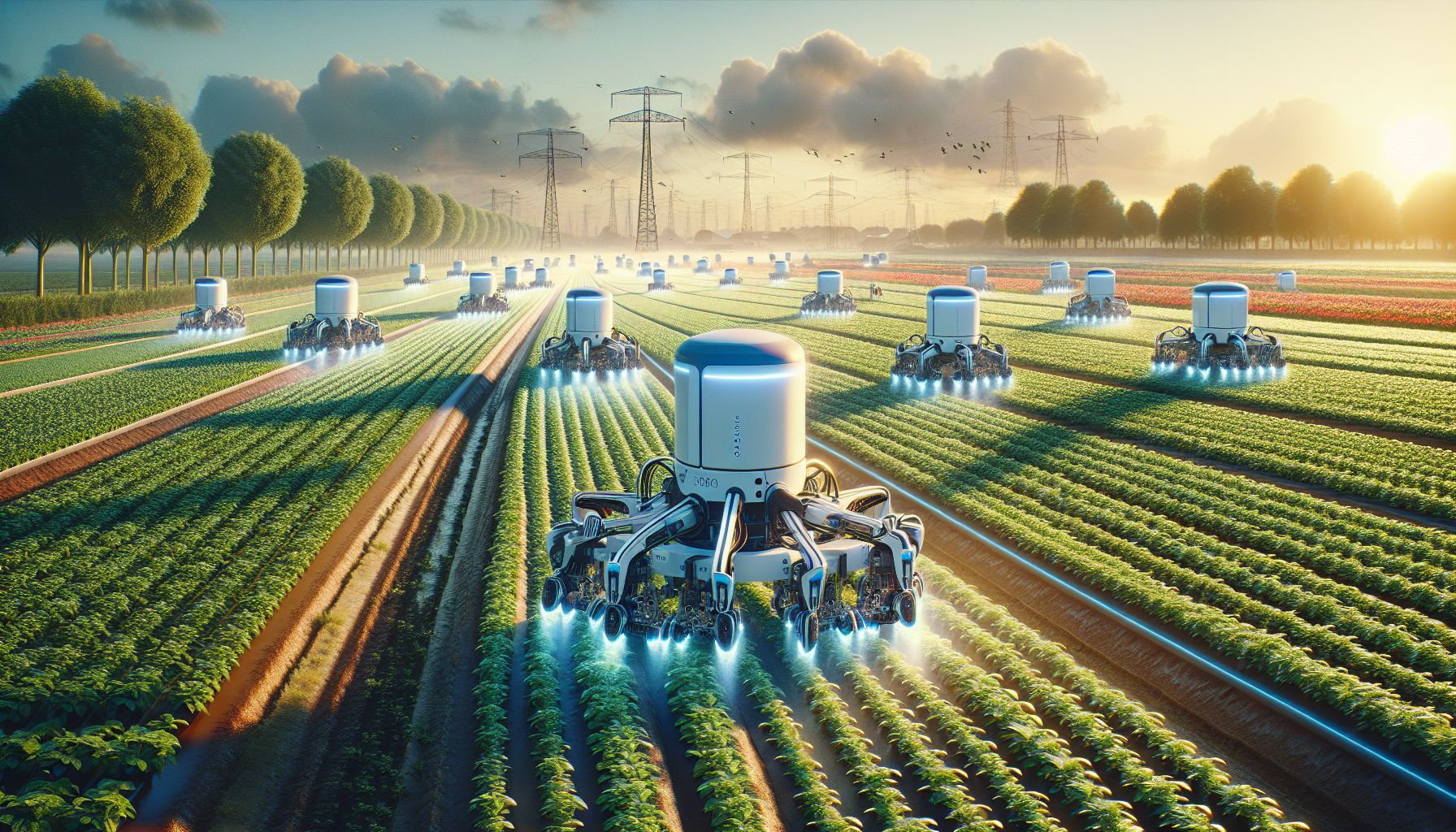Dutch Farms Embrace Autonomous Weeding Robots

Netherlands, Friday, 16 August 2024.
Autonomous weeding robots are revolutionizing agriculture in the Netherlands, offering a sustainable alternative to chemical pesticides. These AI-powered machines can remove over 240,000 weeds per acre with 2mm precision, operating day and night to boost farm efficiency and reduce labor costs.
The Pioneer Behind the Technology
Odd.Bot, in collaboration with Delft University of Technology and Wageningen University, along with Kubota, has developed the Maverick, a cutting-edge autonomous weeding robot. This pioneering technology represents a significant step forward in sustainable farming practices by eliminating the need for chemical pesticides and reducing manual labor costs. The Maverick robot is designed to autonomously scan crops and remove weeds with unprecedented accuracy, making it a game-changer in the agricultural sector.
A Farmer’s Perspective
Thijs Geerse, the owner of We Grow Organic, is one of the first to commission the Maverick robot. He highlights the robot’s efficiency and cost-effectiveness, stating, ‘The Odd.Bot weeding robot offers a sustainable alternative to manual weeding, which is becoming increasingly costly and labor-intensive.’ Geerse emphasizes that the robot works autonomously both day and night, significantly increasing efficiency and making sustainable weed control accessible to a broader group of growers.
Advanced Technology for Precision Farming
The Maverick is equipped with advanced technologies such as artificial intelligence and precision cameras, allowing it to remove more than 240,000 weeds per acre with 2-millimeter precision. This high level of accuracy ensures that crops are not damaged in the process, making the Maverick an indispensable tool for farmers committed to sustainable agriculture. The robot’s ability to operate continuously, regardless of time or weather conditions, further enhances its appeal.
Meeting Growing Demand
Martijn Lukaart, CEO and founder of Odd.Bot, notes the overwhelming demand for their technology. ‘The demand for our weeding robots is exceeding our expectations,’ Lukaart says. ‘We have limited our production capacity to be able to continue to service everything properly as well.’ This demand reflects a broader trend in the agricultural industry, where farmers are increasingly turning to automation to address labor shortages and comply with environmental regulations.
Global Implications and Future Prospects
The success of the Maverick robot in the Netherlands has significant implications for global agriculture. As regulatory pressures push farmers worldwide to adopt more sustainable practices, technologies like the Maverick offer a viable solution. The robot not only enhances productivity and reduces labor costs but also aligns with global efforts to minimize environmental impact by reducing the reliance on chemical herbicides.
Collaborative Efforts in Sustainability
The development and deployment of the Maverick robot are the results of collaborative efforts between Odd.Bot and leading Dutch academic institutions. This partnership underscores the importance of combining technological innovation with academic research to create practical solutions for real-world challenges. By working together, these entities are paving the way for a more sustainable and efficient future in agriculture.

